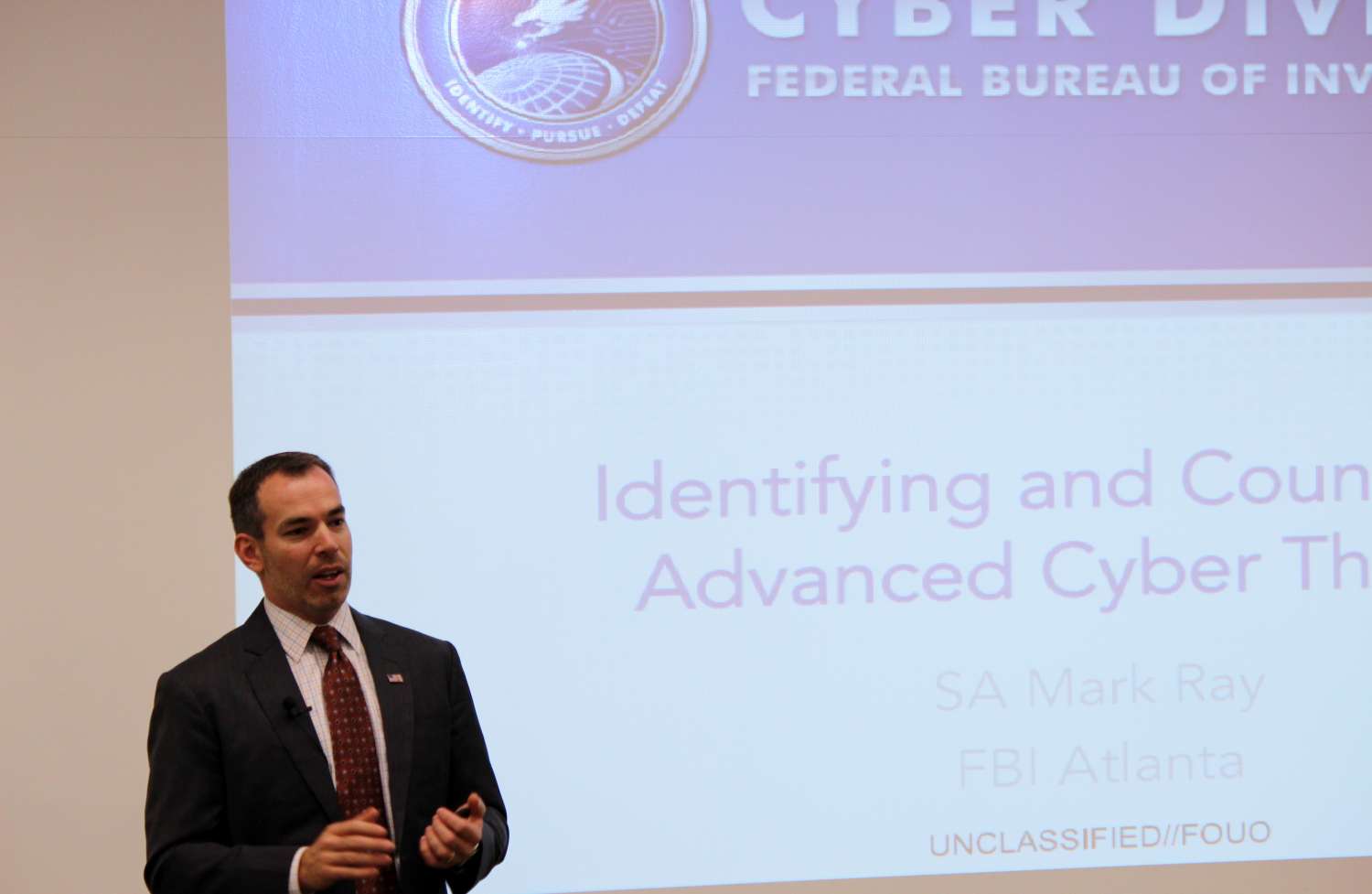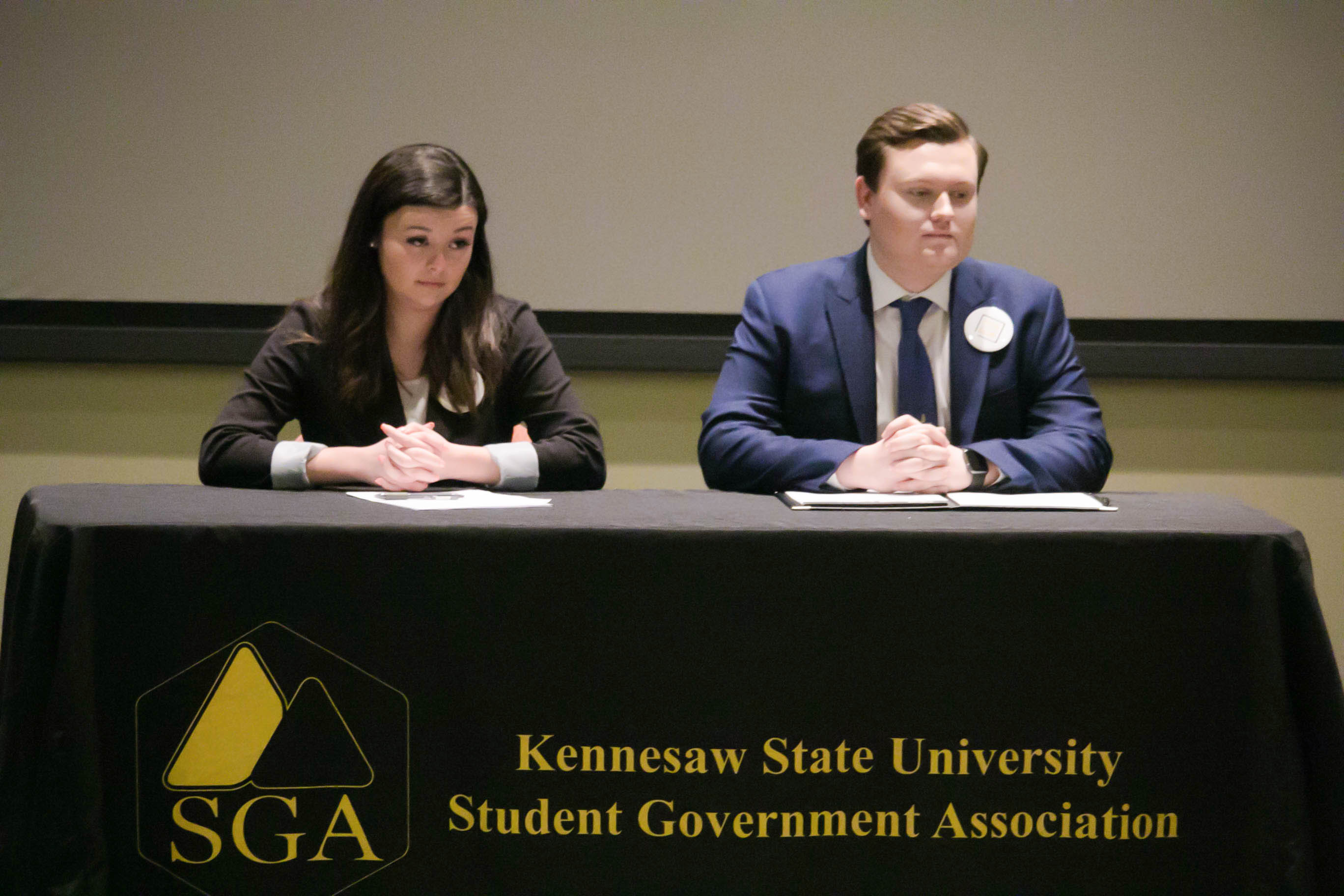
Kaitlyn Lewis, News Editor
Computer science and information security majors came to Kennesaw State University’s fifth annual Cyber Security Awareness Day event, which was held Oct. 16 in the Clendenin Building. The event featured many speakers who have worked in the information security field through organizations like the NSA and the FBI.
The event was a great way for interested students to learn more about the fields they are pursuing, and the speakers shared their insight and advice with these students.
Stephen Gay, UTIS director, said Cybersecurity Awareness Day was created to engage the entire KSU community in understanding the basic information security practices and the role each member of the community plays in ensuring the security of information.
“Since the first event in 2009, the target audience has been extended to include the larger KSU community and we are proud to count SPSU students as attendees in 2014,” Gay said.
Not only did students learn about the opportunities in the information security field, but the importance of it.
One of the event’s sessions, called “Identifying and Countering Advanced Cyber Threats”, informed students on the many cyber threats they could encounter, as well as cyberbullying.
“The scariest thing is that kids are targeted online,” said Mark Ray, from the FBI. In the presentation, Ray said 45 percent of parents do not monitor their children’s online activity, and one half of children ages 9 to 14 have been bullied online.
“I think in college, we’re not dealing with [cyberbullying],” said Tyler Forbes, a KSU student majoring modern languages and culture.
“The real problem is that people don’t know how to handle it,” added international affairs major Onyeka Aniemeka.
One of the biggest cyber threats KSU students and faculty are currently facing is phishing emails, Gay said.
“A typical scenario is: a student receives an email warning of account termination, courses being dropped or another similar threat unless corrective action is taken,” Gay said. The email may ask you to respond with your username and password or click on a link to provide the same information.
“If the unsuspecting student provided this information, their email account is typically compromised within 15 minutes and used to send more malicious emails to everyone within the address book,” Gay said. “UITS will never ask for your password and any questionable emails should be forwarded to abuse@kennesaw.edu for analysis and corrective action as needed.”
Another place where college students are vulnerable to cyber threats is social media.
In October, a KSU student was “catfished” by social media hackers, CBS46 reported. Hackers used her social media profile to create a new profile through which they communicated to their victims, who believed the hackers were helping them get cash. When CSBS46 investigated the profile, it was found to be false; and the hackers’ identities were protected.
“The ease of social media account creation,” Gay said, “coupled with the anonymity of the internet, makes for a powerful tool which some people choose to use for illegitimate purposes.”
Through Cyber Security Awareness Day, students learned that hackers attack in many different ways. One presentation showed a list of retailers which hackers have used to steal customer credit card information.
Tyler Hayden, a member of the KSU UITS Information Security Office, spoke on “the real cost of free apps” in his presentation. Grant Wagner, the technical director of Trusted Systems Research Group in the NSA, informed students on how to enhance their mobile security.



